The Top 10 Supplements That Everyone Should Take
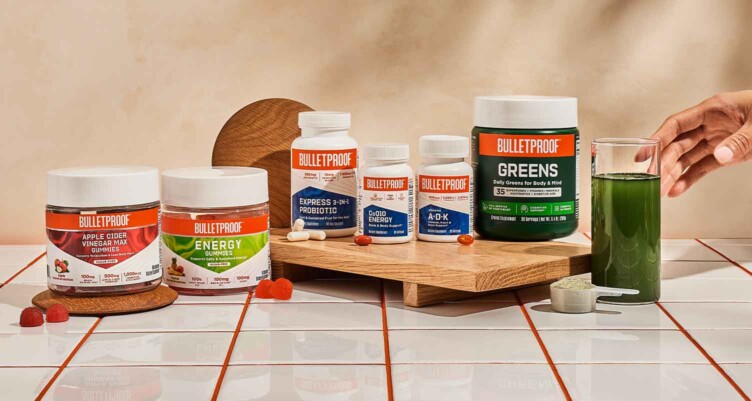
- The best supplements provide you with essential nutrients that your body needs to function optimally, every day.
- Choosing the right supplement is important, as many are poorly made, low-quality and could even cause harm.
- Here’s an overview of the problems with generic supplements, how to pick the right ones and the list of the most important supplements.
Supplements are a way to fill in the gaps of a healthy diet, to ensure your body gets adequate amounts of the vitamins, minerals and other nutrients it needs to function optimally. But, in choosing any supplement, it’s important to know what to look for – to get the best quality while ensuring safety and efficacy.
Before we discuss the best supplements, we must first examine some of the issues with generic ones. By the time you get to the end of our top-10 list, you’ll know exactly how to pick the right supplements to support your brain and body.
Why you might not need a multivitamin
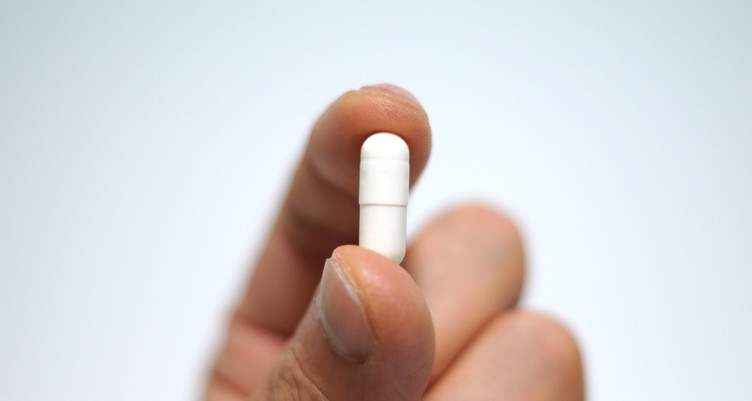
Half of the U.S. population takes a multivitamin, and many people seem to think multivitamins are the first line of defense against malnutrition and disease. In fact, the opposite is true. Multivitamins can actually do more harm than good.
Here are the three main reasons to choose targeted, individualized supplementation over multivitamins:
1. You don’t get the right amounts of vitamins and minerals
Most multivitamins have too much of some nutrients, like vitamin A or B6, and not enough of others like magnesium. The result? You exceed the recommended amounts on some nutrients, while not getting enough of others.
Some manufacturers use small amounts of expensive nutrients so they can list them on the label. The average consumer doesn’t notice the small amounts of these nutrients—they only see what’s written on the front of the package.
The truth is that there is no way to fit a “complete spectrum” of nutrients in one single pill. However, there is a way to formulate supplements that contain science-backed, efficacious doses of targeted ingredients. That’s what you get with Bulletproof supplements.
2. Most multivitamins are low quality
Nutrients come in different forms that function differently inside your body.
Here’s an example: Folate is an essential B vitamin, but folic acid, the kind found in generic multivitamins, can cause problems. Some people who have the MTHFR gene mutation that take folic acid will not be able to utilize it, resulting in feelings of tiredness and weakness. It also increases the risk of certain cancers.[1][2]
Multivitamins may also contain inactive ingredients. Many are made with fillers and additives that interfere with nutrient absorption. That means even if the appropriate amount of a nutrient is included, only a small amount may reach your cells.
Quality supplements will cost more. You can buy generic multivitamins at a big box store, or you can spend a little extra to get supplements made with quality ingredients, no artificial fillers and meaningful doses of bioavailable nutrients.
3. Multivitamins aren’t formulated for you
Nutritional needs vary depending on biological sex, pregnancy, activity levels, age and more. However, most multivitamins market a single formula for adults, but that basic formula doesn’t work for most individuals. A 35-year-old woman with two kids and a full-time job has different nutritional requirements than a 22-year-old male professional athlete.
Taking supplements can make up for the nutrients that are often missing from our diets. But instead of reaching for a multivitamin, work with your healthcare professional to assess your specific needs and deficiencies. They will often start with a blood test, which will determine your baseline levels of essential vitamins and minerals—and give you an individualized blueprint for supplementation.
How to start taking supplements
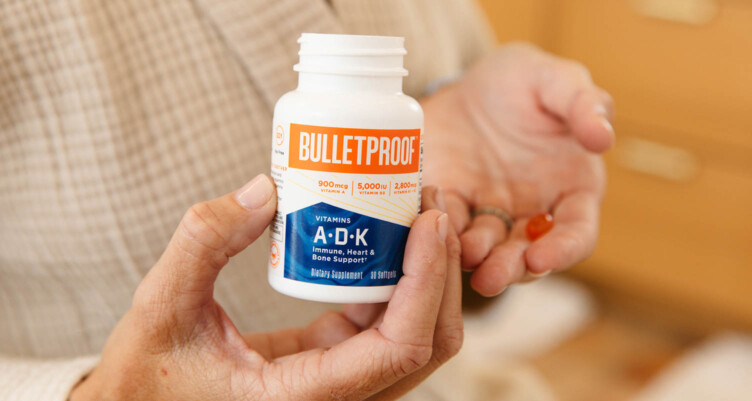
Before discussing the exact supplements most people should take, here are some general criteria for supplementation:
Get the majority of your nutrients from food
We don’t eat nutrients—we eat food. Whole foods behave differently from their individual parts. For instance, the nutrients from a steak or a cup of broccoli are more bioavailable than consuming the equivalent nutrients from a pill or powder. Antioxidants from food are beneficial, but taking high doses of some synthetic antioxidants comes with higher risks for adverse health conditions.[3]
The nutrients in food work together in a process known as food synergy.[4] This means food is more powerful than the sum of its parts. That’s why it’s important to start with a nutrient-dense diet, then supplement specific nutrients according to your specific needs and goals. You get the best nutrients from whole foods. Supplements should then fill in the gaps.
Err on the side of fewer supplements
“Natural” doesn’t mean “harmless” or without side effects. It’s possible to consume too many of natural herbal supplements or food-based vitamins and minerals. And supplements may sometimes contain heavy metals, contaminants and byproducts from processing—which is why you want to purchase high-quality supplements.
Always check the sourcing and quality of your supplement providers. Bulletproof supplements are made with rigorously selected, science-backed ingredients and are always free of soy, gluten and artificial fillers.
The top 10 supplements (almost) everyone should take
- Vitamin D
- Vitamin K2
- Vitamin A
- Vitamin C
- Iodine
- Krill Oil
- Magnesium
- L-Tyrosine
- Zinc and Copper
- Methyl Folate and Methyl B-12
Vitamin D for strong bones, muscle function and immunity

Vitamin D – sometimes called the sunshine vitamin – is possibly the most important vitamin you need in your daily routine.
Vitamin D acts on over 1,000 different genes and serves as a substrate for sex hormones like testosterone, human growth hormone and estrogen.[5][6] It moderates immune function and supports a healthy inflammation response. It assists in calcium metabolism and bone formation. This is one of the few vitamins humans can make on their own, with assistance from sunshine.
While humans can get vitamin D from sun exposure, that alone is not enough. In colder climates that are farther north (or south, in the Southern Hemisphere), the appropriate wavelengths don’t reach you during the winter months.
If you’re concerned about toxicity from supplementation, make sure to get your vitamin D level tested and consult a physician about the appropriate amount to take based on your blood test result.
- Suggested dose: 1,000 IU per 25 pounds of body weight*
- Form: Vitamin D3 with vitamin K (which is what you get with Bulletproof Vitamins A-D-K)
- When to take it: In the morning
Prefer a gummy vitamin? Bulletproof Vitamins A+D+K Gummies provide 900 mg of vitamin A, 2,000 IU of vitamin D3 and 1,180 mcg of vitamin K1 and K2. They are delicious, convenient and sugar-free!
*Your skin tone affects your dose. People with darker skin don’t convert sunlight into vitamin D as quickly as lighter-skinned people. No matter your skin color, always test your blood levels because your individual response to dosage may vary.
Vitamin K2 for bone health and heart health

Most adults are deficient in vitamin K2, a fat-soluble vitamin involved in calcium metabolism. Excess calcium is deposited in your arteries, leading to calcification and decreased vascular function. This is part of why vitamin K should be taken with vitamin D: These vitamins work together to play a critical role in calcium transport and absorption.
Vitamin K1 is the form of vitamin K found in leafy veggies, and vitamin K2 is the form found in grass-fed animal products. Ruminant animals like cows and sheep convert K1 into K2 in their stomachs, but humans don’t convert K1 to K2 as efficiently. Note: Animals can only get K1 from grass, not grains, which is another reason to choose grass-fed dairy and meat.
There are two subsets of vitamin K2: MK-4 and MK-7. Both forms offer benefits for cardiovascular and bone health.
- Suggested dose: 2,000 mcg per day (100 mcg MK-7 form)
- Forms: MK-4 and MK-7 (found in Vitamins A-D-K)
- When to take it: Once daily with food and your vitamin D supplement
Vitamin A for immunity, vision and reproductive health

Vitamin A is essential if you don’t eat organ meats like beef liver, kidney and heart. This vitamin is an important cofactor for numerous metabolic reactions and bodily functions.
An important thing to remember is that you can’t get vitamin A from plants. Plants don’t have vitamin A—they have beta-carotene. Beta-carotene can be converted into vitamin A, but the conversion rate varies by person, which maybe why some populations develop vitamin A deficiency despite consuming far more than they should have required.[7]
- Suggested dose: 3,000-10,000 IU per day
- Forms: Retinol (which you’ll find as retinyl palmitate in Vitamins A-D-K)
- When to take it: With meals
Vitamin C for immune function and to combat oxidative stress

This is one of the safest, most effective dietary supplements you can take. Vitamin C is needed for collagen and connective tissue formation.[8] It enhances the body’s level of glutathione, the most powerful antioxidant in the body.[9] Vitamin C is important for immune function and fighting free radical damage.
Some fruits and vegetables are high in vitamin C, but cooking and storage methods can deplete vitamin C content. Supplementation with at least 500 mg per day is optimal. When you need extra immune support, take a higher dose of vitamin C.
- Suggested dose: 500-1,000 mg per day
- Forms: Ascorbic acid or liposomal vitamin C
- When to take it: In the morning and evening
Looking for an easy way to get your daily dose of vitamin C? Bulletproof Immune Defense Collagen Protein Packets contain 500 mg of vitamin C, 1,000 IU of vitamin D, our Custom Immune Blend and 7 grams of collagen protein. Take it daily to keep your immune system ready.†
Meanwhile, Bulletproof Immune Complex provides targeted defense with extra immune support from vitamin C, elderberry and an herbal Immunity Blend.†
Iodine for your thyroid, brain and immune system

Iodine is crucial for proper thyroid function and metabolism. It is essential for proper brain development and functioning.[10] Physically active people are at especially high risk for deficiency because iodine is lost through sweat.[11]
Seafood provides some iodine, but not enough to reach required amounts.
If you have a thyroid condition, consult your healthcare provider before you supplement with iodine.
- Suggested dose: 150 mcg to 1000 mcg (1 mg) per day
- Forms: Kelp powder sourced from clean waters or potassium iodide capsules
- When to take it: Once daily with food
Omega-3 fatty acids for your brain, heart and skin
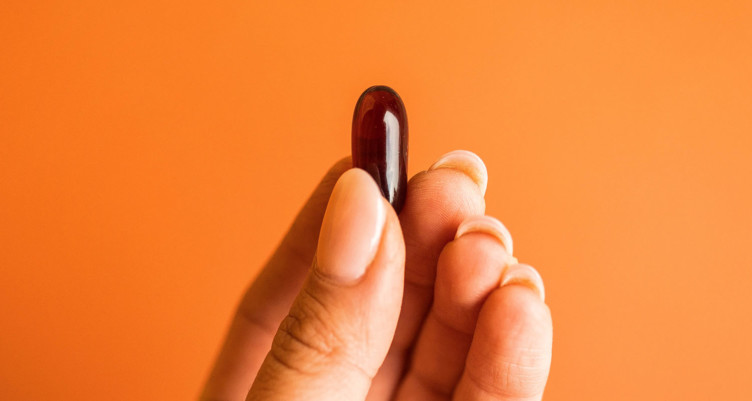
Most individuals need 250 mg-500 mg of DHA and EPA a day.[12] However, most people don’t consume nearly enough omega-3s through diet alone.
Eating grass-fed meat and wild-caught fish several times a week can be sufficient. If you can’t find grass-fed meat or wild-caught seafood or choose not to consume animal products, you should supplement with 500-1000 mg of krill oil per day.
Why krill oil? It’s a stable source of omega-3s, and is in the phospholipid form, meaning it’s easier for your brain to use, meaning it’s easier for your brain to use. It also includes astaxanthin, a potent antioxidant. Combined with fish oil, it delivers the full array of essential fatty acids in one supplement.
- Suggested dose: At least 2,000 mg per day (get it with Bulletproof Omega Krill Complex)
- Forms: Krill and fish oil blend
- When to take it: With meals
Magnesium for energy, brain function and more
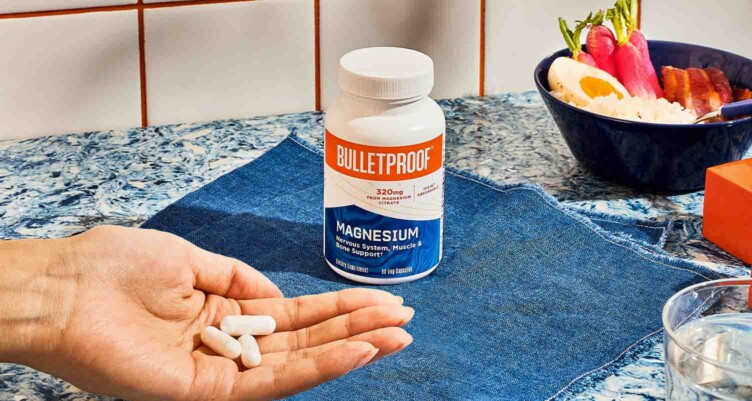
This is almost as important as vitamin D, and almost as underappreciated. Magnesium is used in over 300 biological processes, including all of those involved in ATP (energy) production.[13] It’s also vital for proper transcription of DNA and RNA.
Magnesium deficiency is common, as the majority of people don’t meet the recommended daily allowance (RDA).[14] Due to soil depletion and poor farming practices, it’s almost impossible to get enough magnesium from diet alone. Without a doubt, everyone should supplement with magnesium.
- Suggested dose: 200-800mg per day (start low and increase)
- Forms: Citrate, malate, glycinate, threonate or orotate (find out how to choose the best magnesium supplement)
- When to take it: Before bedtime
Bulletproof Magnesium provides support for your nervous system, muscles and bones by delivering 320mg of highly absorbable magnesium citrate per serving. You can take all three capsules at once, or divide the dosage throughout the day.†
L-tyrosine for mood

This amino acid boosts mood, cognition, physical and mental stress response and healthy glandular function. L-tyrosine quickly crosses the blood-brain barrier to increase the neurotransmitters dopamine, epinephrine and norepinephrine.[15] It’s also a building block for thyroid hormone.
Your body can make L-tyrosine, but it depletes in the presence of stress. In today’s modern world, most people’s production can’t keep up. If you’re dealing with a lot of stress, tyrosine can help.[16] Tyrosine keeps your brain performing at its best during stress and improves your focus with tasks that demand mental endurance. You can get tyrosine in complete protein sources like beef, chicken, fish and even whey protein supplements, but for targeted support and overall wellness, use a dedicated supplement.
- Suggested dose: 500-2000mg per day
- Forms: Pure L-Tyrosine
- When to take it: Whenever you want
Zinc with copper for immunity and energy
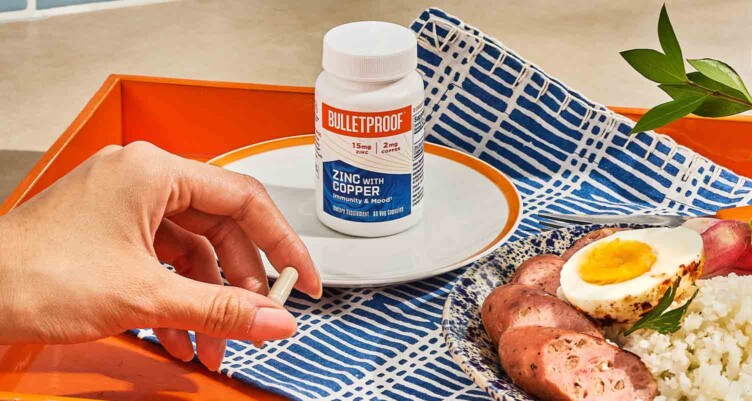
Zinc and copper both serve hundreds of critical tasks to keep you healthy.[17][18] This is why they should be taken together:
- Too much zinc can decrease copper levels in your body
- Together, zinc and copper form the antioxidant copper-zinc superoxide dismutase (CuZnSOD), one of your body’s most critical natural defense mechanisms
Zinc is a key mineral in the support of healthy immune function, energy production and mood. It’s important to take it as a supplement because it can be tough to get a meaningful amount from food, and your body doesn’t store it, meaning you need to replenish each day.
You need copper to work in conjunction with zinc, and for proper vascular and heart function. Most adults in the United States are woefully deficient in copper, consuming only 0.8 mg per day.
Copper intake has fallen over the last century due to modern farming and dietary practices. Modern fruits, vegetables, and conventional meats are low in copper, containing 75% less than they used to.
- Suggested dose: 15mg zinc orotate and 1-2mg copper orotate per day. Get science-backed doses of both in Bulletproof Zinc With Copper
- Form: Capsule
- When to take it: Outside of meals or supplements containing iron, calcium and phytates, which can decrease absorption of zinc
Methyl B-12 and Methyl Folate for the brain

Many people are deficient in vitamin B12, but your B vitamins are vital because they support healthy cells, nerve function and energy production.[19]
One of the most crucial areas for B-12 is the brain.[20] It’s necessary for maintaining the methylation reactions that help repair DNA. Vitamin B-12 may also help lower homocysteine, an amino acid that can damage blood vessels in high quantities.
Methyl B-12 is methylcobalamin, a form of vitamin B-12 that’s easier for your body to assimilate. Take it with folate, a form of vitamin B9. Folate supports a healthy heart and nervous system. Aim for balanced amounts of both to maintain brain health, so take them together.
- Suggested dose: One Bulletproof Methyl B-12 lozenge daily and at least 800 mcg of folate (5-MTHF or folinic acid, not folic acid)
- Forms: Capsule and/or lozenge
- When to take it: Daily with food
Supplementation is something everyone should do, but how much depends on your diet and other lifestyle factors. Always start by talking to your healthcare provider (and dietitian) to figure out an individualized plan that works for you.
Is stress getting the best of you? Discover which science-backed supplements can help.
Sign up for early access to sales, product launches, the latest Bulletproof news and more!
This article was originally published on February 9, 2022 and has been updated with new content.



